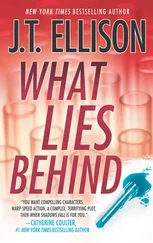And so he was, for the next ten years. He really was, I can say that honestly.
Food was sent down from the manor, and either Hetty or Dora – both of them ageing considerably by that time – came each day to cook and clean.
The strange thing is that Saul and I found a degree of companionship during those years. We had our books and our music, and we listened to the wireless in the evenings. There were plays and concerts and discussions. I even taught him to play chess, although he was very slow and I nearly always won. But he thought it a grand, grown-up thing to do and he was fascinated by the carved ivory chessmen, which had been his grandfather’s and which were kept in a carved wooden box from Florence.
At times when I thought he was sufficiently sedated we walked in the grounds of the manor, but the walks were as slow as the chess games; the constant sedatives had given him a kind of shambling gait. Or perhaps it wasn’t the sedatives, perhaps it was simply that the syphilis was getting hold of his bones by then. If I said I felt guilty about that I would be lying. I didn’t feel guilty. I still wanted Cadences and all that went with it as much as ever, and I wasn’t going to let this half-demented creature cheat me, not now, not when it was within touching distance.
We weren’t entirely isolated. Serena sometimes got Flagg to drive her down to the lodge, where she sat in her son’s room and sipped a glass of sherry or a cup of tea. Flagg was far too old to drive by then, but in a place like Priors Bramley no one noticed or probably even cared. Saul sat quietly and obediently in his chair on those occasions, watching Serena speak, occasionally mouthing the words she said, like a child learning to talk. Later, of course, Serena was too infirm to move very much and she stopped coming. Martlet and Colm still came, though, and once Martlet brought down a colleague for a new opinion on Saul’s condition. That only confirmed what we already knew.
In the main, Saul’s life had not altered so very much from when he lived at the manor. Or had it? There were times when he would look at me very pensively, not saying anything, just looking, as if he was trying to see into my mind.
It was Serena who suggested there should be a good stock of provisions inside the lodge. Colm had died the previous year – Flagg found him at his desk, apparently bent over his books but in fact stone dead – and her own health was deteriorating fast. I think she was becoming aware of the frailty, even the mortality, of all humans.
‘Supposing,’ she said, seated very stiff and upright in her shadowy room in the manor, ‘something were to happen to you, Jamie? I don’t mean anything dreadful, but what if you were taken ill, or you fell while out walking and broke an ankle, and Saul was locked in that room, unable to reach anyone.’
The words, ‘And you couldn’t call for help or use a phone,’ hung on the air between us.
It was a reasonable concern. Serena, for all her faults, wasn’t without intelligence or, indeed, a degree of imagination. Flagg and Mrs Flagg had retired by then, Hetty had left to live with an elderly sister, and there was only the faithful, and somewhat younger, Dora to look after Serena. Dora came to the lodge just twice a week by that time, bringing stews and pies that could be reheated, and bread, which she bought in the village, together with butter, cheese, eggs and milk. She cleaned the rooms while she was there and took washing back to the manor. I used to walk up to the manor to dine or have lunch with Serena two or three times a week.
So we called workmen out again, and a big walk-in store cupboard was made off Saul’s room. The shelves were stocked with a variety of tinned food; rationing had recently been withdrawn and most food could be bought easily by then. There were tins of meat and fruit; sardines and herring in tomato sauce, and soup squares. Condensed milk, lunch biscuits and packets of dried egg. And large canisters of tea and sugar, and bottled coffee. I had a couple of cases of wine and several bottles of brandy as well. Saul never drank that, of course – or, if he did, it was at my subtle invitation, when Martlet or one of the others was expected and could see him in a slurred-speech, blurred-eye condition.
Perhaps the lingering memory of the siege in the fort at Edirne, and of Gil going out with the soldiers to shoot the rats, was still with me, because when I saw the shelves of food, I felt surprisingly comfortable and secure.
Did I say I never expected Brenda Ford’s child to impinge on my life? That statement is another of the ironies about my life.
In fact I never saw the girl until that sultry autumn evening when Brenda brought her to the manor – I think either to complain that the money wasn’t reaching her, or perhaps to ask for more. I never knew which.
I didn’t see exactly what happened that evening. I was in Colm’s library; I had walked up to the manor to see if he had had any books on late eighteenth-century music. I had put a gramophone record on – I remember it was my beloved Deserted Village overture – and left the doors open while I searched. Serena never minded my doing that, even though the old gramophone at the manor was a bit unreliable and scratchy. Once or twice she even said the music soothed her.
But even from the library I heard Brenda shrieking that night, saying something about needing money. Then I heard Serena’s furious voice, although I didn’t hear exactly what she said. But even though she was so fragile you could have snapped her bones in two with your hand, she still had that indomitable spirit. Without it I doubt she’d have lived as long as she did, for the disease that had killed my mother and old Julius had ravaged her very severely. Even so, she was not prepared to be browbeaten by anybody – and she did not like or trust Brenda Ford.
I left them to it. I couldn’t risk confronting Brenda, even after so many years. I stayed in the library until I heard her go, then I went downstairs. I remember how I went into the drawing room, not realizing what had happened at first, just seeing her seated in her usual place. I remember, as well, how the gramophone had been restarted. I thought Serena had done that; it wasn’t until afterwards I understood it must have been Brenda Ford, trying to put everything back as it had been, trying to cover up what she had done.
I never thought Brenda deliberately killed Serena. I don’t think she was capable of killing. Whatever had happened had been an accident. I was just taking in the fact of her death when the child came back. She didn’t immediately see me, but I saw her. My daughter. You’d have expected me to feel some rush of emotion, some recognition, but I didn’t. I studied her dispassionately, seeing that she was very like Brenda and hardly like me at all. She was staring at Serena with horror and it was only when I reached out to switch off the gramophone that she realized I was there. She stared at me, then ran out almost at once, and even though she couldn’t possibly have seen me in any detail in that dark room, I always had the feeling she never forgot me.
Whatever the truth behind Serena’s death, as far as I was concerned it was another thing to lay at Saul’s door. I didn’t have to think twice. I locked the room with Serena’s body seated in its chair like a stiff-legged, staring-eyed doll, and got Dora to telephone Martlet. He came that same evening, arriving just before midnight in a hired car.
He said, ‘Was it Saul who did it?’ and I nodded. Even though Cadences was no longer the beckoning prize it once had been, I still instinctively added this new and useful crime to Saul’s account. Because I didn’t know what the future might hold. I still had that tiny unquenchable hope that one day Cadences might be rich again, and the deceit and the lies might still be worth it. They might even be worth the agony I suffered in that Turkish courtyard, with the stench of blood and fear tainting the air.
Читать дальше












